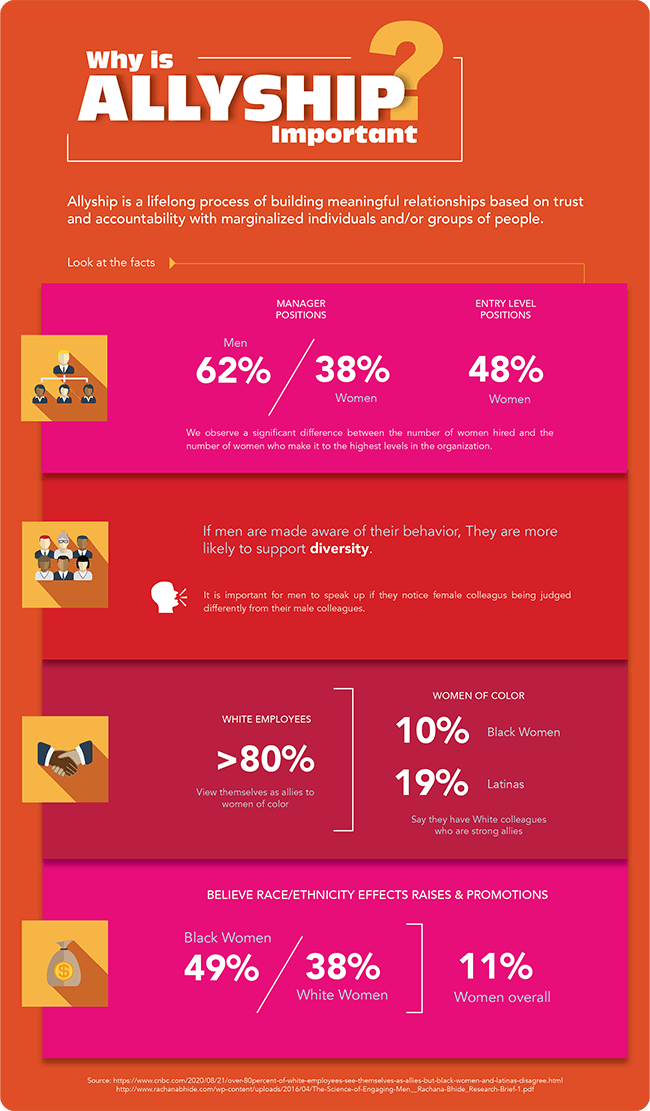Allies, individuals who stand up for the equal and fair treatment of people different than them, offer some of the most effective and powerful voices for those who are underrepresented. The practice of emphasizing inclusion and human rights by members of an “in” group, to advance the interests of an oppressed or marginalized “out” group (allyship) is also one of the most critical activities that makes the NIH a more inclusive environment for all employees, patients, and visitors.
Please take a moment to see below some interesting points:

Why is allyship important?
Allyship is a lifelong process of building meaningful relationships based on trust and accountability with marginalized individuals and/or groups of people. Look at the facts.
Men hold 62% of manager positions compared to women who hold 38% of manager positions. Women make up 48% of entry level employees. We observe a significant difference between the number of women hired and the number of women who make it to the highest levels in the organization.
If men are made aware of their behavior, they are more likely to support diversity. It is important for men to speak up if they notice female colleagues being judged differently from their male colleagues.
Less than 80% of White employees view themselves as allies to women of color. Roughly 10% of Black women and 19% of Latinas say they have White colleagues who are strong allies in the workplace.
49% of Black women say they feel their race/ethnicity will make it harder for them to get a raise or promotion, compared to 38% of White women and 11% of women overall.
Sources: cnbc.com and rachanabhide.com
Do you have a story idea for us? Do you want to submit a guest blog? If it's about equity, diversity, or inclusion, please submit to edi.stories@nih.gov.
For news, updates, and videos, follow or subscribe to EDI on: Twitter, Instagram, Blog, YouTube.








